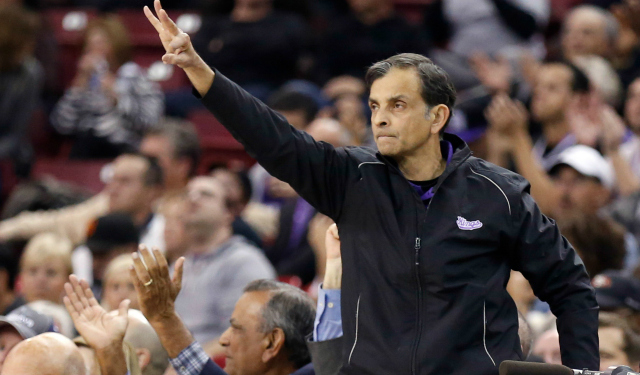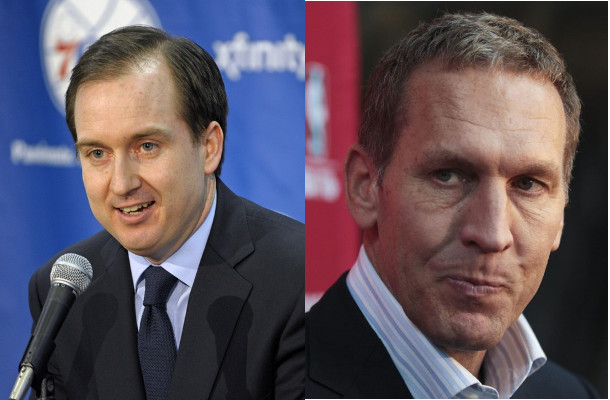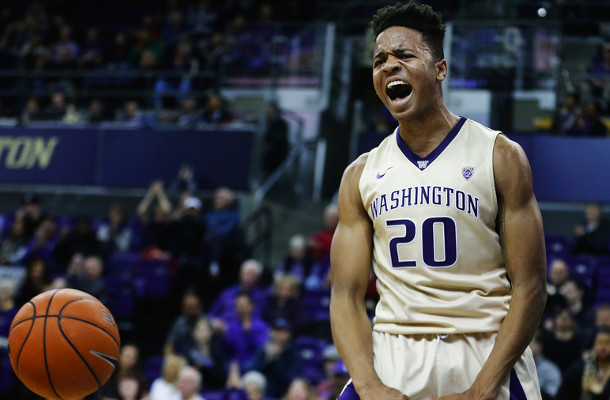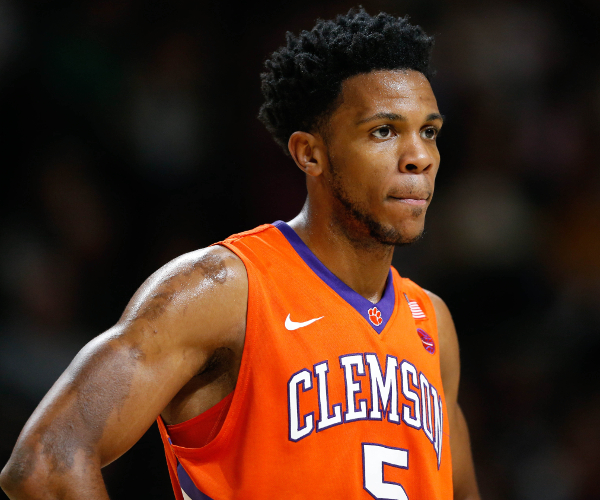The far-reaching ramifications of the DeMarcus Cousins trade

The news about the Sacramento Kings potentially trading DeMarcus Cousins started off innocently enough yesterday, the kind of rumor that seems to inevitably pop up about the Kings’ star at this time of year.
Late Sunday night those rumors turned into reality, with Vivek Ranadive and Vlade Divac shocking the basketball world by doing what they’ve previously hesitated to do: trading Cousins and Omri Casspi to the Pelicans for Buddy Hield, Tyreke Evans, Langston Galloway, a 2017 1st round pick and 2017 2nd round pick.
Cousins’ temperamental attitude and the Kings’ consistent losing ways placed Cousins at the forefront of rumors every trade season, but the past few months seemed to make it increasingly likely that the team and star were destined to be with each other long term.
First came the news about the new designated player exception, allowing the team that drafts star players the ability to pay substantially more money than any other team in the league can, a concerted effort by the league to prevent superstars from changing teams. Signing elsewhere, or even being traded elsewhere, would become very costly, financially, for star players, and that seemed as if it would increase the chances that Cousins would be a King beyond when his contract expired in the summer of 2018.
That seemed as if it was working out exactly as planned, and as recently as a few weeks ago. All signs pointed to the Kings, with owner Vivek Ranadive desperate to break a decade-long playoff drought, willing to offer Cousins an extension of upwards of $200 million this season to keep the star player Ranadive has always had an affinity for.
That was a disappointing development for the Sixers and their fans.
Ever since the summer of 2015, when the Sixers traded virtually nothing to the Kings for a pair of pick swap rights and a future 1st round pick, the Sixers have been well-positioned to capitalize on the Kings’ continued dysfunction. Having that unprotected pick, on a team that has so consistently failed to make the playoffs, was a tremendous haul to bring in for no real long-term consideration. Yet the most recent developments over the last few months seemed likely to prevent a best-case scenario from coming to a fruition, a world in which the Kings entered a long rebuild after moving on from their disgruntled superstar, allowing the Sixers to reap the benefits.
Let’s jump right into the many ways in which this trade impacts the Sixers future.
New Orleans is no longer a potential Jahlil Okafor destination
The Pelicans have long been in search of another offensive-minded big man to pair with Anthony Davis, and they were one of the teams most frequently mentioned as a possible trade destination for Jahlil Okafor.
Those rumors were seemingly verified last night, when multiple reporters mentioned the Pelicans pursuit of Okafor once again, with Sean Deveney of the Sporting News saying the Sixers turned down a similar sizable offer for Okafor from the Pelicans.
Pels offered Tyreke Evans, 2017 1st rounder and future pick for Jahlil Okafor. Same package for Cousins, but with Buddy Hield added. BUDDY!
— Sean Deveney (@SeanDeveney) February 20, 2017
With many of the teams (Pelicans, Nuggets, Blazers, Raptors) that are frequently brought up as potential trade targets having already acquired centers in advance of Thursday’s trade deadline, it might be tempting to paint the Sixers as a loser in last night’s trade. Au contraire. The Sixers could find themselves with precisely zero legitimate suitors for Okafor and still come out as huge winners in last night’s trade.
That leaves Sixers fans in a little bit of an awkward situation. It is, in the end, a huge positive that Colangelo turned down the rumored deal, even if true, because it set the Pelicans up to acquire Cousins and increase the value of the Kings draft assets the Sixers already own, yet you wouldn’t be wrong to be concerned with what Colangelo is expecting in return for Okafor at this point.
Think about how incredible that is for the Sixers. Bryan Colangelo reportedly balked on a trade offer for Okafor that is far beyond what I think most expect the eventual return to be and yet still came away as a big winner in all of this.
(Note: Ramona Shelburne of ESPN reported that the Pelicans wanted the 2017 pick to be top-20 protected, which makes turning down the offer far more defensible for Colangelo. Shelburne also reported it was a disagreement over those protections which ultimately held the deal up).
One possibility that did arise out of this: it seems as if the Kings could be in the market for some frontcourt scoring.
Jrue Holiday in free agency?
The Pelicans largely used the expiring contract of Tyreke Evans ($10.2 million) to match Cousins’ salary, which increases their 2017-18 financial commitment considerably. Between Anthony Davis’ $23.8 million 2017-18 salary, Cousins’ $18.06 million salary, Solomon Hill ($11.7 million), Omer Asik ($10.6 million), E’Twaun Moore ($8.4 million), and various other flotsam, the Pelicans are projected to be within approximately $14 million of reaching the $102 million cap despite having little talent around Cousins and Davis.
That number doesn’t include upcoming unrestricted free agent Jrue Holiday, a player who the Sixers have been rumored to have interest in pursuing this summer.
On the one hand, letting a legitimate starter leave should become less likely for a Pelicans team with such a dynamic frontcourt. On the other hand, with scant resources to continue to add talent to a team desperately in need of depth, the Pelicans may be leery of handcuffing their financial flexibility to sign a player who has had such trouble staying on the court.
Exactly how this trade impacts the Pelicans desire to commit to Holiday this summer will be interesting to watch unfold. My guess is they’ll be more likely to do whatever they can to keep Holiday, but there is a world in which they’re hesitant to commit upwards of 60% of their cap to Davis, Cousins, and Holiday.
2017 pick swap
Part of the kings ransom the Sixers received from Sacramento was the right to swap first round draft picks, at the Sixers’ discretion, in both the 2016 and 2017 drafts.
Those odds seemed to take a hit of late, with the Kings running off a recent 4 game winning streak to climb all the way up to the 9th seed in the Western Conference and with, if the season ended today, the 11th best lottery odds, with just a 2.9% chance of jumping into the top 3, which would factor into a potential pick swap with the Sixers.
Yet the Kings, at 24-33, remain just 2.5 games up on the Sixers at 21-35 and just 3.5 up on the Orlando Magic, who currently have the 4th worst record in the NBA. The Kings have been absolutely dreadful with Cousins on the bench, being outscored by an average of 7.1 points per 100 possessions and watching their offense fall to what would be a league-worst 97.7 offensive rating in the 875 minutes that Cousins has been on the bench.
Cousins had mostly been healthy and available for the Kings this season, missing only 2 games so far. Yet last year the Kings were a miserable 4-13 in the games Cousins missed, which combined with their poor net rating while he’s been on the bench this year makes you wonder exactly how much of that ground the Kings can make up over the remaining 25 games. Can they climb up to the 7th worst record in the NBA? 5th worst? 4th? Only the Nets (9-47), Suns (18-39), and Lakers (19-39) seem truly out of reach at this point.
And that has a massive impact on the Sixers’ ability to get a top-3 pick.
With Joel Embiid (hopefully) returning to action after the All-Star break, and Ben Simmons (possibly) playing at some point this season (although I have my doubts), the Sixers have a very real chance to make up those 2.5 games and leapfrog the Kings in the standings by the end of the season. That itself would have a positive impact for the Sixers, allowing them to retain, say, the 5th pick in the draft while showing internal improvement and growth in their young stars, and rising up the rankings accordingly.
But it’s the ping pong ball combinations which have the chance to become really special.
Let’s say the Kings collapse and end up with the 5th worst record. Let’s also say the Sixers, hampered by injuries, never take off, and finish with the 6th worst record. In a normal scenario the Sixers would end up with a 6.3% chance at the top pick and a 21.5% chance to land in the top 3 after May 16th’s lottery.
But because of the pick swap those odds in that scenario jump up to a 15.1% chance at the #1 pick and a 46.5% chance at a top-3 pick, odds roughly equivalent to the 3rd worst record in the NBA. That has the chance to keep climbing even higher. With Sacramento at the 4th worst record and the Sixers 5th that jumps to 20.7% at the #1 pick and 59.2% chance at a top-3. At 3rd and 4th we’re now looking at a 27.5% chance at #1 and 71.1% chance at a top-3 pick. That seems relatively unlikely but not entirely impossible, and would be virtually unprecedented in nature.
Yet that’s not even the best development…
(Related: I wrote a profile on the architect of that Sixers/Kings trade: Sachin Gupta. Feel free to give that a read).
A 2019 unprotected first round pick
During that fateful trade in the summer of 2015 the Kings originally agreed to send a top-10 protected 2018 draft pick the Sixers’ way, which would become unprotected if delayed until 2019. After the results of last year’s lottery that pick is now set in stone as an unprotected 2019 1st round pick.
(Note: the Sixers get this pick regardless of if they swap picks in 2017 or not. The two have no impact on each other).
2019 was always the optimal year for that pick to become unprotected because it was the year after DeMarcus Cousins’ contract was set to expire, and the rocky relationship between star and franchise gave that pick a tremendous amount of upside down the line if a split became necessary.
Again, because of the unforeseen developments of the new CBA agreement, that upside appeared, for a brief few weeks, like it wouldn’t be fully realized. Now, as the Kings are set to embark on a long rebuild, and not even able to realize the full fruits of what is very likely to be a tanking end to the 2016-17 season, that upside is back in a big way.
The upside to that pick is now very real, especially considering the Kings draft history over the last decade (no, seriously, look at it), Vlade Divac’s inexperience as a general manager, and Vivek Ranadive’s horrible combination of fickle direction and meddling ownership style.
This is a group that, by multiple reports, did not know the CBA well enough to know they could clear cap space with the stretch provision, set to begin one of the toughest tasks in professional sports: rebuilding in an NBA designed to make such ascension through the ranks difficult.
This, of course, leaves the Sixers in an incredibly enviable position. The draft assets they have, which include not only that 2019 Kings pick but also the Lakers pick, a pick which is likely to either be a pick in the 4-to-6 range this year (it’s top-3 protected) or an unprotected 2018 pick, are likely the 2 most valuable draft picks, outside of the Boston/Nets fiasco, that are currently owed throughout the league. This pick not only has value for the Sixers to keep until 2019 and use to add another potentially high-upside prospect to a burgeoning young core, but also as a trade chip that immediately received a surge in league-wide value last night.
It is frequently stated that Sam Hinkie and his team did little more than lose games. Hogwash. The Sixers’ previous management wisely invested, heavily, in the future of teams that have largely been proven to be dysfunctional at their core, and that has the chance to pay incredible dividends beyond the Joel Embiid, Ben Simmons, Dario Saric foundation that has already been established.
Related Posts
-
smittybanton
-
tk76
-
-
smittybanton
-
SmallBalls





